New York Regulators Approve Regulations For Home Cannabis Cultivation
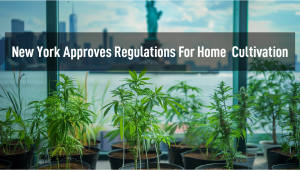
- 1. New yorkers react to newly adopted home cannabis cultivation rules
Cannabis regulators in New York recently approved rules to govern home cannabis cultivation, more than two years after state lawmakers legalized marijuana for adults. The New York Cannabis Control Board adopted the new home grow rules on June 11, about four months after the body gave preliminary approval to the regulations before opening a public comment period for the proposal.
“This regulatory package builds on the existing home cultivation regulations for medical patients and caregivers, which have been in place for over a year,” said John Kagia, director of policy for the New York Office of Cannabis Management, according to a report from WSHU public radio.
Under the new regulations, adults aged 21 and older are permitted to grow a total of six cannabis plants for personal use, including three immature plants and three mature, flowering plants. Households with more than one adult are capped at 12 cannabis plants, including six mature and six immature plants. Medical marijuana patients are permitted to designate a caregiver to grow cannabis for them.
“While we know that home cultivation of cannabis and the idea around home cultivation of cannabis regulations can raise fears of large groves and densely populated residential areas, the experience from other states tells us that really isn’t the case,” Kagia said.
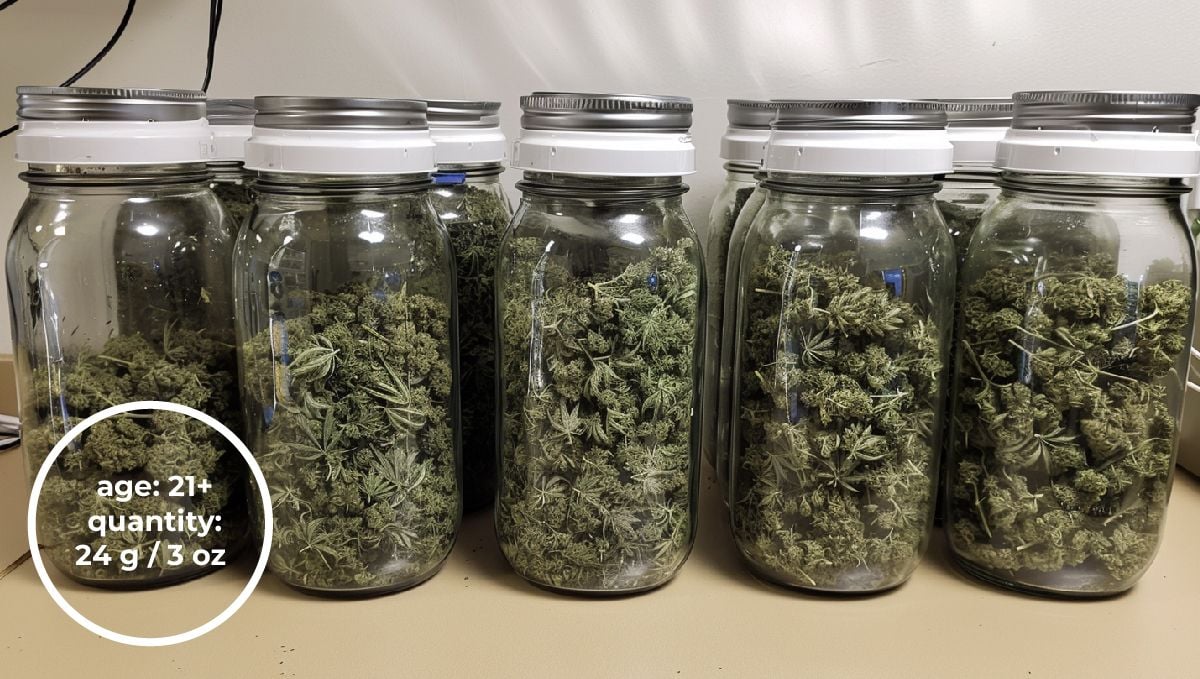
Adults who cultivate their own cannabis are permitted to possess up to five pounds of harvested and trimmed marijuana at their house or the weight equivalent in cannabis concentrates. Regulators say the limits are reasonable and in line with New York’s cannabis legalization statute, which was approved by lawmakers and former Gov. Andrew Cuomo in March 2021. Under the law, adults aged 21 and up are permitted to possess up to three ounces of marijuana and up to 24 grams on their person in a public place.
Only licensed retailers including cannabis dispensaries and micro business are permitted to sell cannabis plants, seeds or clones. Those who cultivate cannabis home at home are only permitted to do so for personal use and for non-commercial gifting to adults. Cannabis may not be bought, sold or traded. Adults who make cannabis butter or concentrates with their homegrown weed are not permitted to use flammable materials in the process.
Adults are permitted to grow cannabis in rental properties including single rooms, apartments, houses and mobile homes. Home growers are required to limit the impact 0f their garden on neighbors, including by taking steps to limit cannabis odor. Property owners and managers are not permitted to refuse to lease to a prospective tenant or penalize residents for cannabis cultivation. Residents of multi-unit residential structures including apartment and condominium buildings may be required to implement odor mitigation measures, while those in federally subsidized housing would be prohibited from cultivating weed at home altogether.
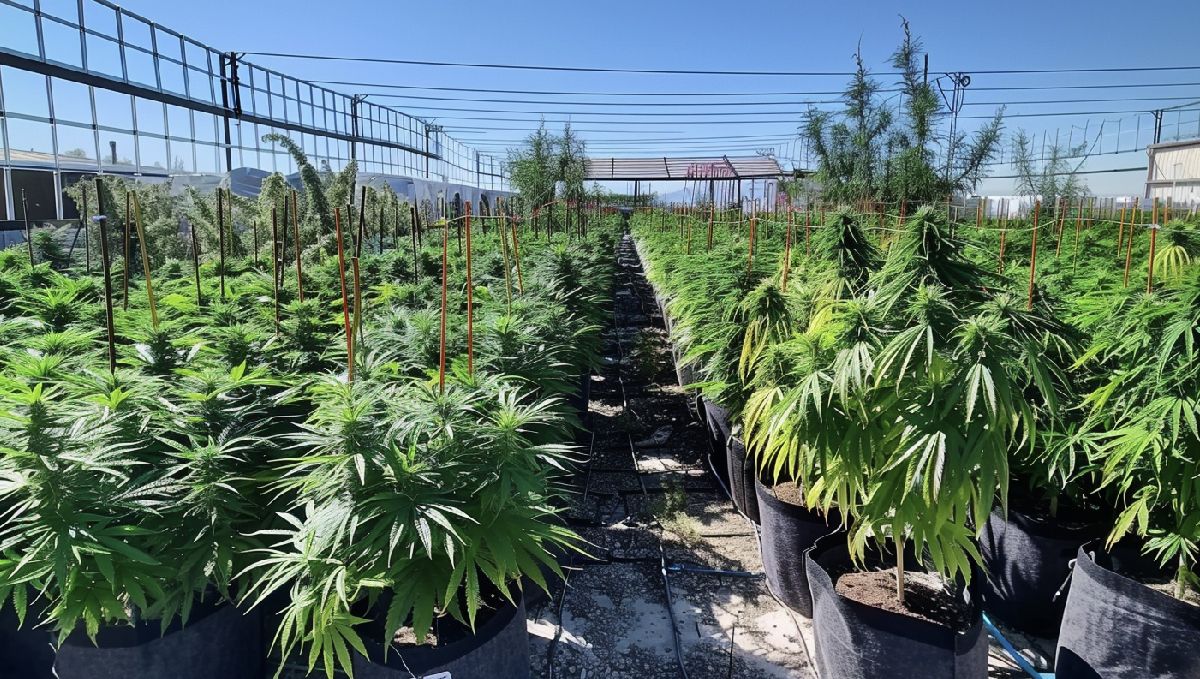
“Co-op buildings and condos would be able to determine whether or not they want to implement general odor mitigation policies that could impact adult-use home cultivation in compliance with state and local municipal laws, rules and ordinances,” New York’s home cannabis cultivation rules specify. “Additionally, landlords can institute similar odor mitigation policies outlined in leases in compliance with state and local municipal laws, rules and ordinances. Landlords, co-ops and condos still cannot forbid residents from possessing cannabis in their private residences unless this would risk federal benefits to said housing units.”
Those who grow cannabis must maintain a secure garden that is not accessible to others, particularly children. Outdoor cultivation sites must be hidden from public view and indoor gardens should be locked to keep unauthorized people from entering the cultivation area.
The legislation that legalized cannabis in New York, known as the Marijuana Regulation and Taxation Act (MRTA), included provisions to allow for the home cultivation of cannabis. Drafting and adopting the home cultivation rules has taken longer than expected. The Cannabis Control Board originally expected to adopt the draft rules at a meeting in January, but the meeting was canceled after New York Democratic Gov. Kathy Hochul criticized the rollout of legal cannabis sales by the board and the Cannabis Control Commission. The draft proposal of the home cultivation regulations was then adopted in February, but a two-month delay in the beginning of a required 60-day public comment period pushed back final approval of the rules to a meeting of the board held on June 11.
New Yorkers React To Newly Adopted Home Cannabis Cultivation Rules
Cannabis enthusiasts and representatives of the regulated marijuana industry welcomed the formal adoption of New York’s home cultivation rules. Nhi Kha of Sativa Remedy, a hemp and CBD store in Towanda, New York, gave local television news viewers a brief introductory tutorial to home cannabis gardening.
“I think it’s really been a lot of momentum and excitement. We believe that if you can cultivate your own tomatoes at home, you should also be able to cultivate your cannabis at home,” Kha told Buffalo’s ABC television affiliate WKBW.
New York Cannabis Insider senior writer Sean Teehan said that the legalization of home cannabis cultivation is not likely to significantly impact retail sales of weed and could give the regulated industry and the businesses that serve it new opportunities to engage with consumers and increase sales.
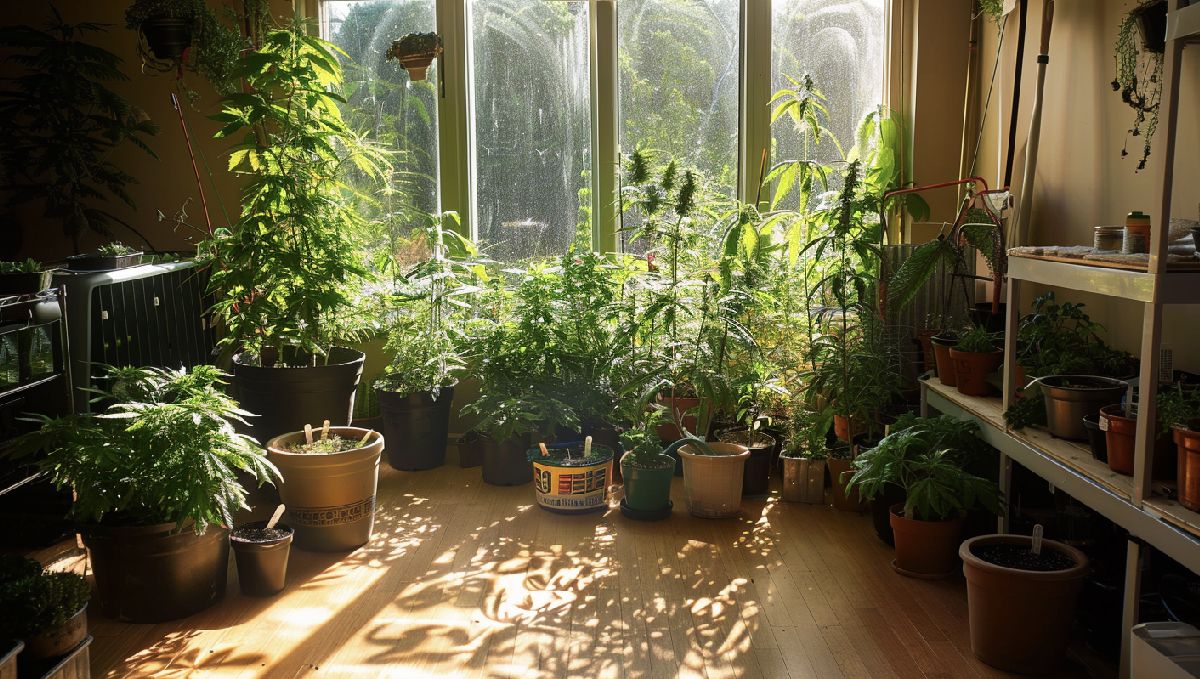
“I don’t think there’s going to be anybody who’s not going to go to dispensaries because they’re growing,” Teehan told Spectrum News 1. “But I think it does open doors for other ancillary businesses.”
Mack Hueber, the president of cannabis products manufacturer Ayrloom, noted that a culture of home marijuana cultivation can benefit businesses in the industry by helping to foster a base of informed and engaged consumers.
“I look at this as a huge positive for the overall cannabis industry,” he said, comparing the development to the trend of home beer making. “With home brewing, what you saw as people venturing out and trying new things than their standard grocery store brand, right? And it just really kind of spurred more interest in the category. And I expect that kind of same thing with cannabis,” Hueber said.
Josh Mirsky, owner of Stage One Dispensary in Rensselaer, New York, told reporters that his business will be one of the retail locations offering cannabis plants for sale.
“Supposed to happen for a while,” he told CBS 6 in Albany. “Everybody’s known that you’re going to grow at home; we've just kind of been waiting for that regulation to be officially passed.”
Cannabis cultivator Scott Ugell, however, feels that home cannabis cultivation in New York could potentially take some sales away from the licensed cannabis industry.
“It’s one step towards allowing people to have access to it, which is a positive thing. It goes against the business interests of the industry,” said Ugell. “But legalizing cannabis was always about social equity and access for people. So this does fit in with the direction they had.”
Teehan noted that the adoption of the new cannabis home cultivation rules is also a welcome sign for consumers who have been waiting for New York’s cannabis legalization to go into full effect.
“There are people, especially people in their later 40 and 50s, who had their houses raided by people with guns because they were, you know, they had like a small harvest in their backyard,” he said. “So, a lot of those people, that’s a big reason they want to be staying on the right side a lot.”








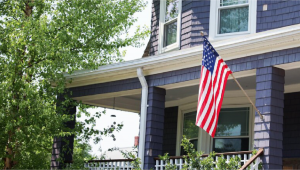


Comments